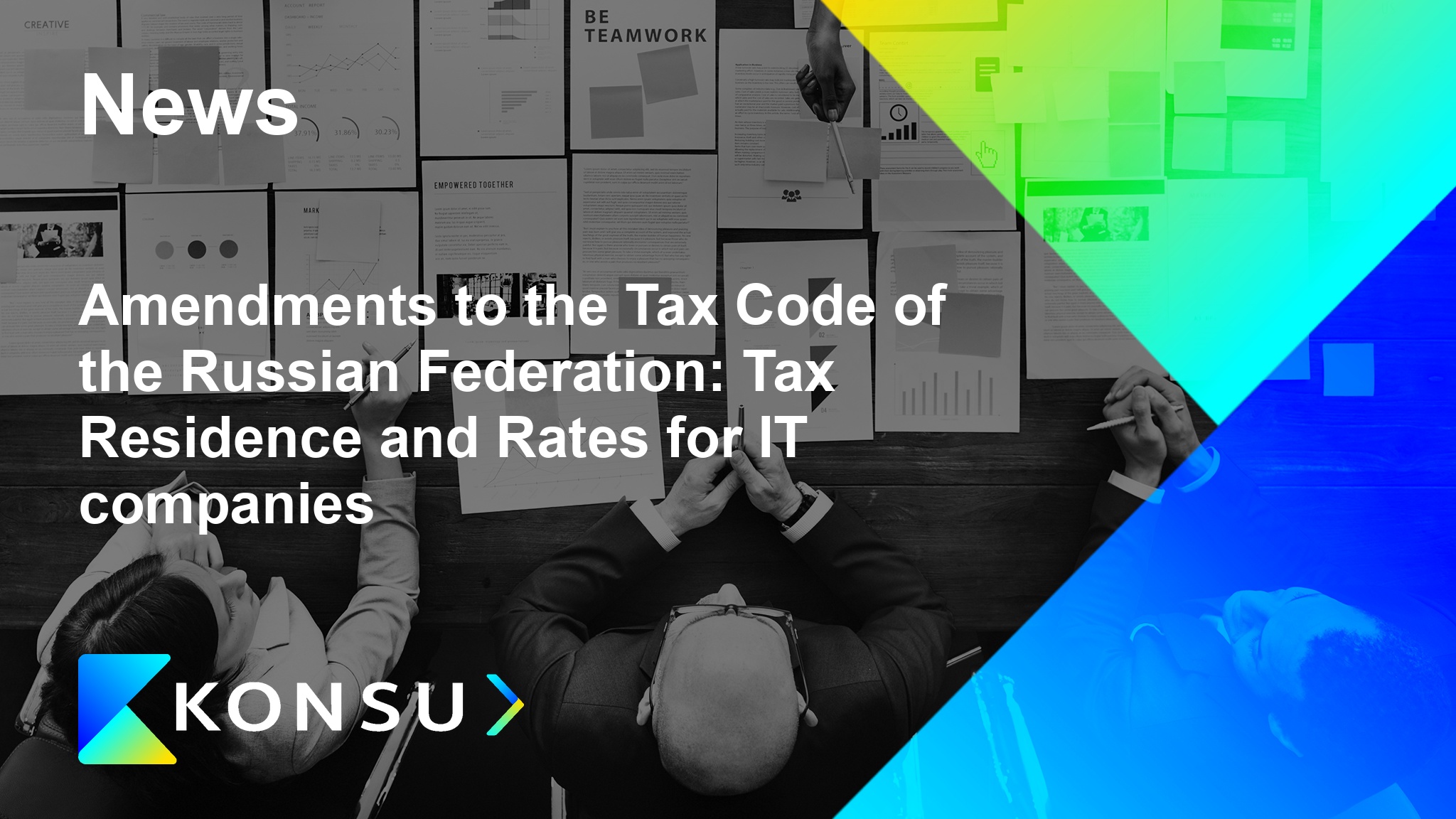Increases by 2 times the norms of organizations' expenses for the payment of compensation for the use of employees' personal transport for business trips
Decree No. 417 of the Government of the Russian Federation of April 3, 2024 changed the norms of expenses for compensations to employees of organizations for the use of personal transport for official purposes.
Read more
New procedure for the translation into roubles of profits tax amounts when income is paid to a foreign organization
As from 31.08.23 the procedure for the conversion into roubles of profits tax withheld by a Russian tax agent when income is paid to a foreign organization has been changed.Read more
Tax law changes effective August 31, 2023
From August 31, 2023, a number of changes in tax legislation come into force, which may affect many taxpayers.Read more
The law on windfall tax has been passed by the State Duma
For companies whose average profit for 2021 and 2022 turned out to be higher than 1 billion rubles, a tax on super profits is introduced. According to the law, the payment will be 10% of the amount exceeding the profit for 2021-2022 over the indicators for 2018-2019.Read more
Overview of legislation changes - March 2023
Overview of the most important legislation changes - March 2023
Read more
The EU has included Russia in the "blacklist" of jurisdictions, suspension of double taxation avoidance agreements is possible
On February 14, 2023, the Council of the European Union ("EU Council") released a press release stating that Russia has been included in the "blacklist" of non-cooperative jurisdictions for tax purposes. According to EU authorities, Russia is not striving to resolve issues related to a special regime for international companies in special administrative regions to meet the criteria of effective tax management of the European Union.Read more
4 harmful and dangerous misconceptions about storing accounting documents
From letters from colleagues and explanations from government agencies, we have identified harmful and dangerous misconceptions about document storage. In our article, we describe what accountants most often confuse.
Misconception #1. Electronic primary documents must be stored in printed form.
The law does not require printing electronic primary documents and keeping them in paper form. Tax authorities have the right to demand documents during inspections, and as a rule, certified copies (Art. 93, para. 2 of the Tax Code) must be provided. But if the document is made in electronic form, send it through a personal account or via electronic reporting system.
There are cases when it is impossible to present documents in the form in which they are made. The company has the right to issue electronic documents in any format (letter from the Federal Tax Service dated December 9, 2022, No. ZG-3-26/13861). But tax authorities can only accept documents in the form of xml files and scanned copies (tif; jpg; pdf; png).
Documents not in the format of the Federal Tax Service can be sent to the inspection in two ways. The first is to print and send on paper with a note that the document is certified by an electronic signature (letter from the Federal Tax Service dated December 11, 2017, No. ED-4-15/25048). The second - print, scan, and certify the scan with a reinforced electronic signature (letter No. ZG-3-26/13861).
Misconception #2: Paper documents can be scanned and stored in electronic form
Keep documents in the form in which they were created (para. 24 of FSBU 27/2021). Converting paper documents to electronic form is not allowed. This is confirmed by officials (letters from the Ministry of Finance dated December 28, 2022, No. 07-01-10/128798, and December 5, 2022, No. 03-03-10/118589).
Tax inspectors during an audit have the right to familiarize themselves with the originals of the documents (para. 7, clause 2, article 93 of the Tax Code). Scanned documents do not replace paper originals, even if copies are certified with an enhanced electronic signature. If a company only has scans, inspectors will disallow expenses and deductions, impose additional taxes, penalties, and fines. In addition, the company may be fined 10,000 rubles for a gross violation of accounting rules (article 120 of the Tax Code).
Misconception № 3. The storage period is considered from the date of document processing
The storage period for documents should be calculated from January 1 of the year following the year in which the document processing was completed (part 2 of article 21.1 of Federal Law No. 125-FZ of October 22, 2004, clause 4.1 of the Instruction approved by the order of Rosarkhiv No. 237 of December 20, 2019). For primary documents, the storage period should be calculated from January 1 of the year following the year in which you last used the document for calculating and paying taxes, as well as compiling reports (letter of the Ministry of Finance No. 03-07-11/45829 of July 19, 2017). The storage period for VAT registers should be counted from the date of the last entry in a special way (Government Resolution No. 1137 of December 26, 2011). Accounting and tax documents that confirm the calculation and payment of taxes should be kept for five years (subparagraph 8 of paragraph 1 of article 23, subparagraph 5 of paragraph 3 of article 24 of the Tax Code).
Documents on losses should be kept for the entire period during which you reduce the tax base of the current period due to losses (paragraph 4 of article 283 of the Tax Code). The maximum storage period is 10 years.
Documents that confirm the calculation and payment of contributions should be kept for six years (subparagraph 6 of paragraph 3.4 of article 23 of the Tax Code).
Misconception #4: It is possible to dispose of documents that do not confirm tax calculations.
It is safer to keep documents for at least five years that even indirectly confirm transactions. Tax authorities may demand additional papers to verify the reality of transactions.
Reporting exchange rate losses in profit tax declarations
For the period 2022-2024, a special procedure for accounting for exchange rate differences was introduced: exchange rate gains in 2022-2024 and exchange rate losses in 2023-2024 should only be accounted for as soon as the relevant claims (liabilities) are terminated (fulfilled) [i].Read more
Amendments to the Tax Code of the Russian Federation: Tax Residence and Rates for IT companies
We review below the main amendments introduced by Federal Law 265-FZ dated July 31, 2020 to the Russian Tax Code, in particular, to tax residency in Russia in 2020 as well as profit tax and social insurance contribution rates for IT companies.
Ratification of OECD Multilateral Convention (MLI)
The President of the Russian Federation signed on May 01, 2019 Federal Law No. 79-FZ Ratifying the Multilateral Convention to Implement Tax Treaty Related Measures to Prevent Tax Base Erosion and Profit Shifting.
Read more









